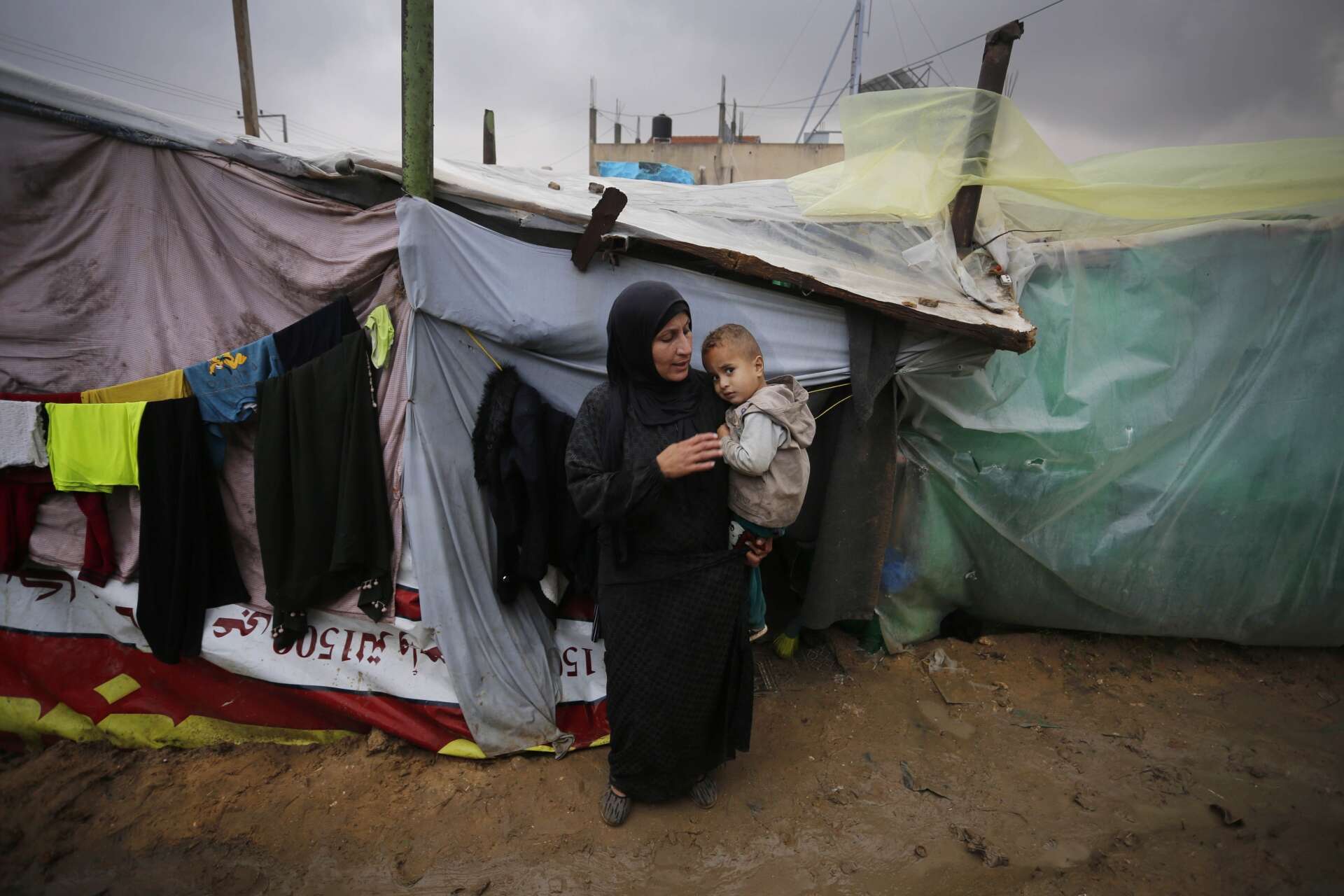
Why isn’t more aid getting into Gaza?
The Israeli blockade of food, water, fuel, and essential medicines and supplies is inflicting immense suffering on Palestinians in Gaza. Learn more and find out what the IRC is doing to help.

The Israeli blockade of food, water, fuel, and essential medicines and supplies is inflicting immense suffering on Palestinians in Gaza. Learn more and find out what the IRC is doing to help.
Ongoing violence, bombardment and blockade has led to catastrophic humanitarian suffering for more than 2 million Palestinians—half of them children—who are now without clean water, food and vital medical services and face peril and disaster every day in Gaza.
The entire population of Gaza is experiencing crisis, or worse, levels of food insecurity. At least one in four households, more than one million people, half of the population, are facing catastrophic or famine conditions.
Despite this, humanitarian aid in Gaza has been consistently denied, restricted, and impeded by the Israeli authorities, with less aid entering in February than in January. An immediate ceasefire and a significant scale up of aid efforts is needed to avert further catastrophe.
Find out why Gaza is not receiving enough aid and learn how the IRC is helping Palestinians in need.
Ongoing violence, bombardment and blockade has led to catastrophic humanitarian suffering for more than 2 million Palestinians - half of them children - who are now without clean water, food and vital medical services. Nearly 1.7 million Palestinians, about 75% of the population, are estimated to be internally displaced—many have been displaced multiple times.
More than 32,000 Palestinians—70% of which are reported to be women and children—have been killed since October 2023 and a further 74,000 have been injured. Over 100 hostages remain in captivity. Gaza is now the deadliest place for civilians in the world.
Learn more about the crisis in Palestine.
“They're seeing life being lost… in front of their eyes in the most dramatic fashion… This is about human survival.”@rescueorg calls the imminent famine in Gaza “a profound failure of humanity.”
— Christiane Amanpour (@amanpour) March 20, 2024
Here's my conversation with its CEO @DMilibandpic.twitter.com/NdNxSF2qdO
Humanitarian needs in Gaza are immense and continue to rise as conflict persists. Gaza’s health system is overwhelmed and has not been adequately protected. The Integrated Food Phase Classification System has said that northern Gaza is facing “imminent famine”—more than 20 children have already died of starvation in Gaza.
Food aid and medical support are urgently needed to curtail humanitarian suffering in Gaza.
While the entirety of the population of Gaza lacks sufficient access to food, the situation in the north is increasingly catastrophic. There, one in three children under the age of two is now acutely malnourished and the IPC predicts a famine anytime between now and May.
Malnutrition has devastating and intergenerational impacts on vulnerable groups, including children, pregnant and lactating women, elderly, disabled and injured people, who face high risk of mortality related to inadequate nutrition.
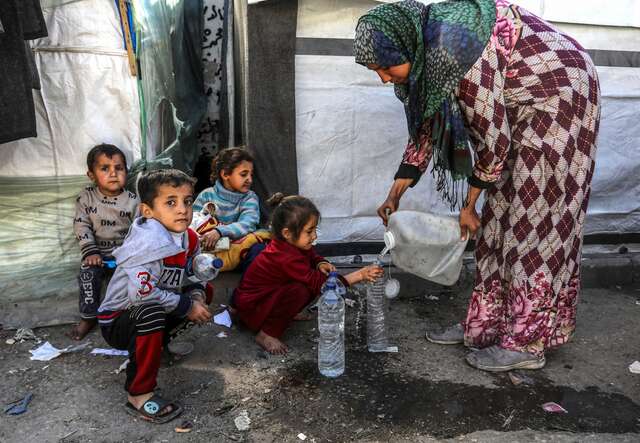
Mahmoud Shalabi, MAP’s senior program manager in northern Gaza, said: “There is nothing left in the market. People have been grinding animal feed and mixing it with the little flour available to make bread to feed their children. But the quality of this bread is unbelievably bad. Even animal feed is now beginning to run out in the market.”
“Children have started going out on the streets with their plates, and empty pots and spoons banging on them and shouting they want to eat. If this situation continues, I’m afraid the worst will happen and more people will die of starvation.”
Gaza’s healthcare system is on the brink of collapse—only 12 of Gaza’s 36 hospitals are open and partially operational and none able to function at full capacity. The few remaining health services are completely overwhelmed and lack health care personnel and basic supplies. Patients are dying from infections as hospitals are pushed to the breaking point.
“These health care facilities are not built for mass casualty. And in fact, no hospital in the world is built for this kind of sustained severity of mass casualty, nor could any be able to sustain it,” says IRC senior emergency health advisor Dr. Seema Jilani, who deployed to Al Aqsa Hospital in Middle Gaza as a member of the IRC’s emergency medical team.
Since 7 October 2023, the Israeli military has conducted more than 400 attacks on health care facilities and personnel in Gaza, which means every single hospital has been impacted. At least 340 health care workers have also been killed and more than 160 others have been detained, according to the Ministry of Health.
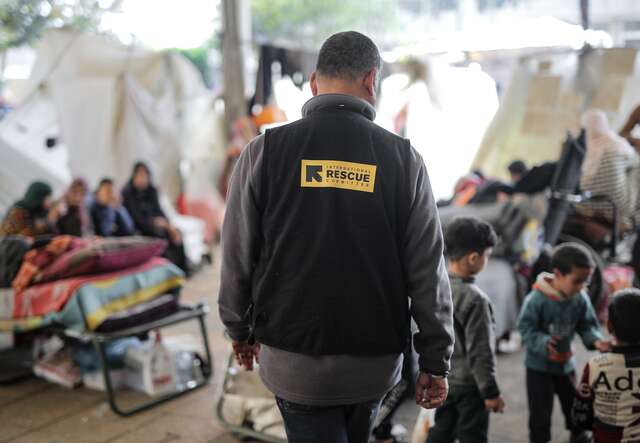
The Israeli blockade of food, water, fuel, and essential medicines and supplies is inflicting immense suffering on Palestinians in Gaza.
Around 2,300 trucks entered Gaza in February, a nearly 50 percent reduction compared to the daily average in January 2024. The first 15 days of March saw an average of 165 aid trucks per day crossing into the Gaza Strip, representing about 33% of pre-conflict level crossings [500 trucks a day). The frequent and prolonged closures and blockages at Kerem Shalom and Nitzana crossings have significantly hampered the entry of humanitarian aid.
IRC CEO and president David Miliband recently spoke with journalist Christiane Amanpour about the items that may be deemed “dual use” for civilian and military purposes, and so turned away.
“Let’s be clear what kind of items we are talking about: a pair of scissors for use in a health center,” he said. “My own organization has doctors—orthopedic surgeons—working in one of the hospitals in Gaza….They lack the most basic implements with which to do their work. When a pair of scissors gets found on a truck, the whole truck gets turned back.”
As the occupying power in Gaza, Israel has the responsibility to ensure that the occupied population receives food and medical supplies. The arbitrary denial of humanitarian access is a violation of international humanitarian law. Intentionally using starvation of civilians as a method of warfare by depriving them of objects indispensable to their survival, including willfully impeding relief supplies as provided for under the Rome Statute of the International Criminal Court, is a war crime.
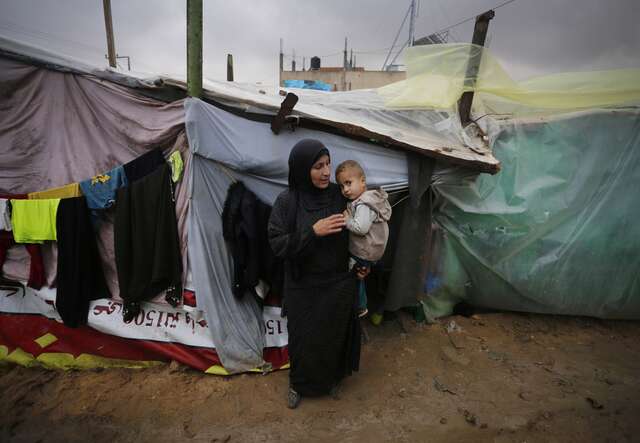
Airdrops—or a new port that could take weeks to construct—are not a solution. Airdrops are an expensive, inefficient and risky way to deliver aid, especially compared to the better solutions of opening more aid crossings for goods and aid workers, reducing the bureaucracy that is curtailing aid flows and curbing interference with aid traffic.
“Airdrops and sea routes are not a solution,” said Sam Duerden, IRC team lead for the Occupied Palestinian Territory. “They cannot deliver the volume or consistency of aid required or meet the specialized needs, especially of malnourished children. They are more expensive, less effective, and more dangerous than land routes, which are readily available.”
Regardless, only a ceasefire will provide the civilian protection, aid flows, repair of infrastructure and public health measures that are so needed to meet the critical needs of more than 2 million people.
The international community must work urgently to establish an immediate and sustained ceasefire in Gaza as the only sustainable way to protect civilian lives, including the release of all hostages. All parties must comply with international humanitarian law, which includes the prohibition of the starvation of civilians as a method of warfare.
“Aid workers need safety and freedom of movement within Gaza to reach and care for malnourished children and all civilians in need,” explains Duerden. “Only a ceasefire and unhindered aid access will give any kind of meaningful respite to the suffering.”
Urge congress to call for a ceasefire now.
At the same time, steps are needed now to support a massive scale-up in humanitarian assistance to Gaza, which will also be critical in the event of a stop to the fighting. This includes continued support for the vital work that UNRWA and its partners do to help Palestinians survive one of the worst humanitarian catastrophes of our time.
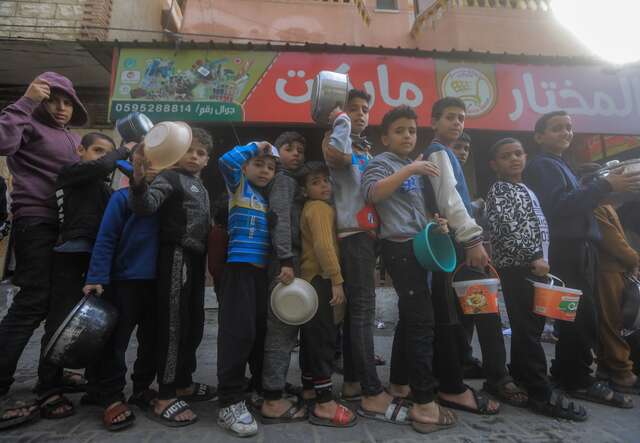
The IRC’s response in Gaza draws on our global experience and expertise in emergency response, as well as our longstanding presence in the region. Local partners have been leading the response in Gaza and we are supporting their objectives through financial, technical and operational support.
The IRC and Medical Aid for Palestinians (MAP) have deployed four successive Emergency Medical Teams to provide emergency and life-saving medical care, including direct medical care at hospitals, and the distribution of medical supplies and pharmaceuticals. The team, composed of trauma doctors, surgeons, pediatricians and disaster experts, are offering surge and relief support to hospitals and providing life-saving medical care to injured Palestinians.
In partnership with Anera, the IRC is working to provide essential mental health and psychosocial support to Palestinian children. We are utilizing a comprehensive approach that prioritizes the needs of children between the ages of 4 and 18, to implement therapeutic activities including play, art therapy and life skills training. Our activities are designed to empower children to cope with their experiences, express themselves creatively, and develop essential life skills for the future, thereby promoting healing, resilience, and emotional wellbeing. By fostering a safe and supportive environment, we aim to mitigate the long-term impact.
The IRC has also partnered with Nafs to establish a Mobile Community Center (MCC) that will enhance the access of marginalized people, mainly children, to their residential areas and provide them with Mental Health and Psychosocial services in the West Bank and Gaza strip.
The IRC has procured or released 46 metric tons of pharmaceuticals and medical supplies which the IRC and our partners are distributing to support health facilities across Gaza. These include pediatric and psychotropic medicines as well as trauma supplies and are based on needs identified and coordinated across health actors working in Gaza.
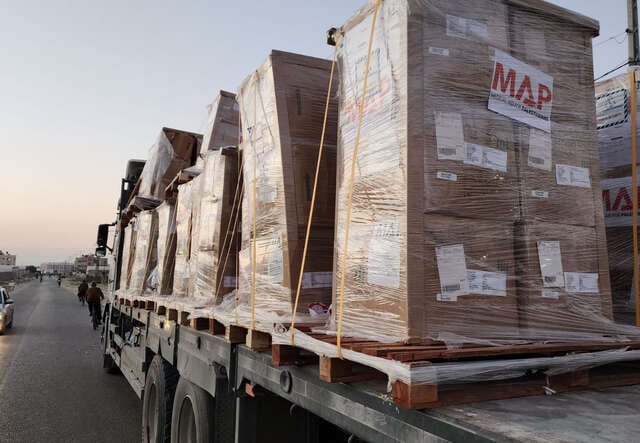
We have partnered with Palestinian NGO, Juzoor for Health and Social Development, to address the health and mental health needs of those displaced and to provide access to basic services for children and families. Together, we are providing critical services, including health services, psychosocial support and cash assistance, in more than 20 shelters throughout Gaza.
The International Rescue Committee (IRC) and Welfare Association (Taawon) partnered to combat the severe hunger affecting displaced families in Rafah, southern Gaza, where over one million people have been displaced and have sought refuge in what is considered Gaza’s last haven. The project worked to alleviate hunger and prevent starvation; improve the nutritional intake of the affected families by providing vital nutrients, vitamins, and minerals, with a special focus on supporting vulnerable populations such as children and the elderly; and enable these families to redirect their limited financial resources toward other essential needs, including health care or non-food items, thereby mitigating the economic impact on internally displaced persons.
The IRC is working with partners to deliver critical emergency aid to families in Gaza and conflict zones around the world.
Donate now to support our critical work.
We are on the frontlines providing critical aid to crisis-affected people in more than 50 countries, including places on the 2024 Emergency Watchlist. You can also urge Congress to call for a ceasefire now and spread awareness of the crisis in Gaza by sharing this Instagram post.